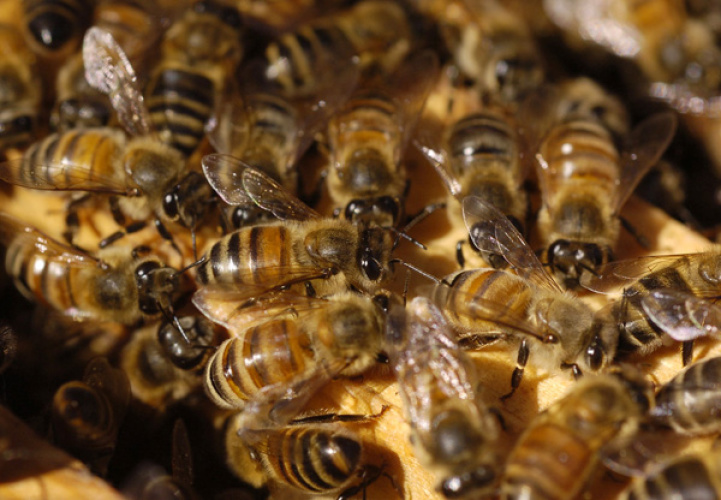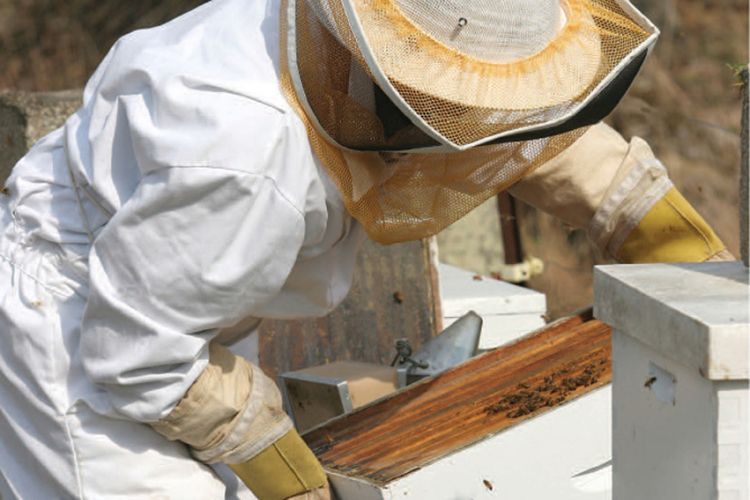Home > Farm > Farm to Table > Florida’s Pollinators Are Sweeter Than Honey
Florida’s Pollinators Are Sweeter Than Honey
In partnership with: Florida Department of Agriculture and Consumer Services
Recognized as some of Florida’s earliest commercial beekeepers, the Cutts family maintains a story threaded with honor and founded on a sewing machine. Third-generation beekeeper Laurence Cutts says his grandfather used to sell sewing machines until he received beehives as payment in 1889. “The farmer didn’t have the money, and his wife didn’t want to get rid of the sewing machine,” Laurence recalls. “He traded my granddaddy eight hives of bees for what he still owed on the sewing machine.”

Since that transaction, the Cutts family has made insects their livelihood, from shipping train-car loads of honey in the early 1900s to selling hives in more than 25 states for pollination services. Laurence also served nearly 20 years as Florida’s chief apiary inspector, developed the Beetle Blaster to trap small hive beetles and earned several awards, including induction into the Florida Agricultural Hall of Fame. As entertainment, Laurence used to wear a “bee beard” at the Florida State Fair to fascinate fairgoers and showcase the pollinator’s manageability and value to agriculture.
“A third of the food you eat on average would not be there if it were not for honeybees to pollinate it,” Cutts says.
See more: Florida Apiculture is the Business of Bees

More Than a Sweet Business
In 2018, Florida beekeepers produced about 10.5 million pounds of honey, valued at $25 million, says Brandi Simmons, assistant bureau chief of the Apiary Inspection Section at the Florida Department of Agriculture and Consumer Services.
“That is significant, but even more so with environmental and economic importance is the pollination services that bees provide,” she says. “Honeybees pollinate a lot of different plants and crops in Florida, including blueberries, watermelon, cucumbers, squash, melons and other specialty crops.”
Florida’s favorable overwintering climate supports its bustling bee business, which pollinates crops throughout the United States. In California, where almond growers would not have a crop without honeybees, Florida beekeepers send 250,000 colonies (or hives) per year, providing more than 10% of the state’s needs for almond pollination, Simmons says.

“The economic impact of pollination services is hard to quantify,” Simmons says. “I’ve had growers say to me, ‘We treat our blueberries for pests, we put fertilizer on our crops, we water them, but nothing contributes as much fruit-set as honeybees.’”
In 2019, the Apiary Inspection Section celebrated 100 years in its role to detect, prevent and treat diseases to protect the beekeeping industry. Likewise, Florida celebrates a huge increase in beekeepers, with about 4,800 backyard and commercial beekeepers managing 650,000 colonies in 2019, Simmons says. In 2005 and 2006, the state had just 631 registered beekeepers.
See more: Honey-Vanilla Brûlée
Tupelo Honey Prized as State Honey
Florida ranks among the top five producers of honey in the United States, and Tupelo honey ranks among the state’s most prized varieties, receiving designation as the state honey in 2016.
“It tastes really good,” says Jim Rish, a member of the Tupelo Beekeepers Association and a fourth-generation beekeeper in the Florida Panhandle where Tupelo honey is produced. “It will not crystallize, and it has a green cast in it because the nectar is greenish. It is pretty honey.”
See more: 9 Fascinating Facts About Honeybees
Rish and his son, a fifth-generation beekeeper, make honey from Tupelo blossoms every spring along the Chipola and Apalachicola rivers, the only place in the world where Tupelo honey is produced commercially. Their hometown of Wewahitchka hosts the Tupelo Honey Festival.
“There are Tupelo trees all over the southeastern United States, but this part of Florida up in the Panhandle has more Tupelo trees in a concentration than anywhere else in the country,” Rish says. “No other state can say they produce the Tupelo honey we produce.”



